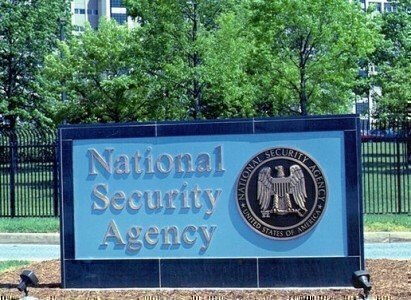With a deadlock in Congress over NSA surveillance firmly in place, three key Patriot Act provisions are set to end on June 1. So what does that mean for the controversial spying program?
 Surveillance will certainly continue under parts of the act and under other government programs designed to combat terrorism, but in the end it could be the legal system, and not Congress, that decides the constitutional fate of the NSA’s program to access Americans’ phone records as a way to sniff out terrorists.
Surveillance will certainly continue under parts of the act and under other government programs designed to combat terrorism, but in the end it could be the legal system, and not Congress, that decides the constitutional fate of the NSA’s program to access Americans’ phone records as a way to sniff out terrorists.
If you are keeping track at home, Senate Majority leader Mitch McConnell introduced a two-month extension of the current provisions in the Senate on Thursday night. Almost immediately, leaders who want the provisions killed objected to the move, as did the sponsors of the House-approved USA Freedom Act.
With three factions in the two Houses of Congress unable to agree on a compromise, the odds don’t look good for the three provisions, which were approved by Congress and President Barack Obama in 2011.
The most-controversial of the three provisions is Section 215, which allows the NSA to obtain and store “any tangible things (including books, records, papers, documents, and other items) for an investigation to protect against international terrorism or clandestine intelligence activities, provided that such investigation of a United States person is not conducted solely upon the basis of activities protected by the first amendment to the Constitution.”
The controversy over Section 215 erupted in 2013 when former NSA analyst Edward Snowden disclosed a massive government system to harvest Americans' phone records, which is authorized by a secret court. The NSA system uses blanket court orders, and not specific search warrants, to compel phone companies to hand over customer metadata to the NSA.
The phone metadata contain basic phone number information, and not the content of calls or the names of callers. But that in itself, critics say, violates the First and Fourth Amendment rights of Americans since the information isn’t obtained via the warrant process.
The government, the same critics say, has other powerful legal tools to get information as part of its terror surveillance program. Section 702 of the Patriot Act is used as a justification for the NSA’s PRISM program, which allows it to collect computer-based information on “non-U.S. persons.” But the NSA only has to prove with a 51 percent certainty that the target isn’t an American, and it can collect information on an American if that person is discussed during a conversation.
Also, Executive Order 12,333 can be used by intelligence agencies to gather information on foreign communications, including communications made by Americans that travel over computer services hosted outside of the United States.
McConnell likely wants the Section 215 provision extended to July 31, 2015 so he can work out a deal to incorporate parts of the phone-record program into a long-term extension. He has objected to the House’s USA Freedom Act, which shifts the burden of keeping the phone records to private companies and forces the NSA to get individual permissions from the secret court to get relevant information from a phone company storing the records.
Regardless of how the June 1 deadline pans out, the prospects of legal challenges loom over any versions of a law that retain elements of the Section 215 program.
Last week, the federal Second Circuit appeals court, based in New York, said the current use of the Section 215 program by the Obama administration was illegal and beyond the scope of the law as written be Congress.
The three-judge panel didn’t rule on its constitutionality of Section 215 and the law in general. But it put a burden on Congress to address several important issues about the law.
“The constitutional issues, however, are sufficiently daunting to remind us of the primary role that should be played by our elected representatives in deciding, explicitly and after full debate, whether such programs are appropriate and necessary,” said Judge Gerald Lynch.
Two other federal appeals courts, in the Ninth Circuit and the District of Columbia, are considering Section 215 cases. Depending on those court’s findings, a split in the appeals courts could lead to the Supreme Court becoming involved at some point.
So lawmakers crafting any extension of any Section 215 component need to take into account how the courts may rule on the First and Fourth Amendment issues involved in how data-records are accessed and the reasons for the searches.
Scott Bomboy is the editor in chief of the National Constitution Center.







